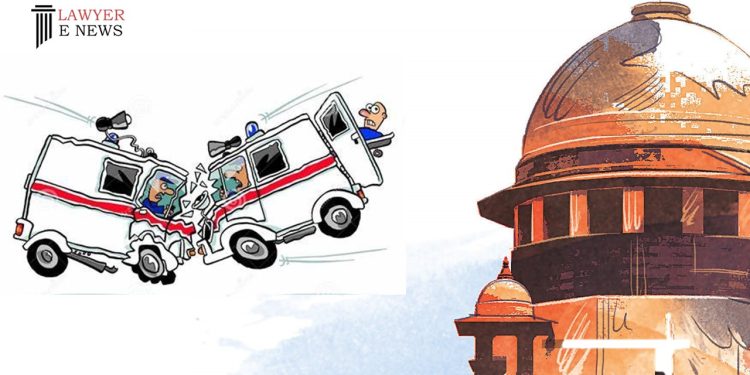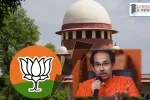Supreme Court emphasizes punitive and deterrent nature of IPC in rash and negligent driving cases

On 28 March 2023, the Supreme Court in a recent judgement (State of Punjab Vs. Dil Bhadur) observed that High Court erred in reducing the sentence from two years to eight months, under Sections 279 and 304A of IPC, without considering the gravity of the offense and the impact of the accused’s rash and negligent driving on the ambulance and its passengers. The High Court’s consideration of the accused’s poor family background as a mitigating factor was insufficient, and the court failed to recognize the punitive and deterrent nature of the IPC.
Facts
The respondent was driving a Scorpio Car recklessly, resulting in the death of one person and injuries to two others who were in an ambulance that the respondent was overtaking from the left side. The trial court convicted the respondent for offenses under Sections 279 and 304A of the IPC, and the sentence was confirmed by the sessions court. The respondent appealed the conviction, and the High Court confirmed the conviction but reduced the sentence to eight months and required the payment of Rs. 25,000 in compensation to the deceased’s family, which was less than the actual sentence period already served by the respondent at the time of the appeal. The State of Punjab appealed against this judgement.
Arguments
The State’s counsel argued that the High Court erred in reducing the sentence imposed by the Trial Court and First Appellate Court. She contended that the High Court did not consider the severity of the accused’s actions, which caused the death of an innocent person and injured two others, and that the court showed undue sympathy towards the accused. She relies on previous court decisions and requests that the appeal be allowed to restore the original sentence.
On the other hand, the accused’s counsel, Shri Aftab Ali Khan, opposed the appeal. He argued that the High Court considered the mitigating circumstances and reduced the sentence to eight months with a compensation payment. He emphasized that the accused is poor and only a driver, and that a two-year sentence would cause great suffering for him and his family. He requested that the High Court’s decision not be interfered with by the Supreme Court.
Observed and Held
The Supreme Court observes that the accused was rightfully convicted for offenses under Sections 279 and 304A of IPC, which were confirmed by the High Court. However, the High Court erred in reducing the sentence from two years to eight months without considering the gravity of the offense and the impact of the accused’s rash and negligent driving on the ambulance and its passengers. The High Court’s consideration of the accused’s poor family background as a mitigating factor was insufficient, and the court failed to recognize the punitive and deterrent nature of the IPC.
The Supreme Court emphasizes the need to strictly punish offenders responsible for causing motor vehicle accidents, given the increasing burden of road traffic injuries and fatalities in India. The court also highlights the importance of proportionality between the crime and punishment and the principle of just punishment in sentencing for criminal offenses.
Supreme Court holds that the High Court’s judgment and order reducing the sentence while maintaining the conviction for the offense under Section 304A of IPC is unsustainable, as the court showed undue sympathy to the accused without considering the gravity of the offense and the impact of the accused’s rash and negligent driving. The court quashes and sets aside the High Court’s order and restores the sentence imposed by the Trial Court, which was confirmed by the First Appellate Court. The accused is ordered to be taken into custody to undergo the remaining sentence. Appeal Allowed.
State of Punjab Vs. Dil Bhadur






